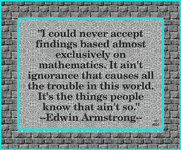Those titles are not scientific papers or reports. They are science-fiction, as is Soylent Green. To think they were anything else would be like placing Mad Max movies into the non-fiction classification. I would not rule out some science fiction stories or books actually coming true, but until they do, they are still science-fiction.
Fiction is based on imaginary persons and events that never happened. There is admittedly a grey area involved where events recorded as being history did not happen as described in the writings, and some events portrayed as scientific proof are later found to be incorrect. For the most part, fiction and non-fiction are separate and opposite categories. As an example, some of the futuristic predictions made by Tesla, himself, never came true. Anything that happens in the future is, at best, an educated guess. Plenty of respected scientists of a recent past time, predicted that computers would never be anything more than sophisticated video games.
The thinking is not dangerous, it is the incorrect conclusions that some people gather from the thinking that is dangerous.
View attachment 249740
Edwin Howard Armstrong (1890-1954) was a pioneering American electrical engineer and inventor, best known for his contributions to radio technology, particularly the development of FM radio. He was born in New York City and studied at Columbia University, where he invented the regenerative circuit and later the superheterodyne receiver, both of which revolutionized radio transmission. Armstrong's invention of FM radio in the 1930s, which allowed for high-fidelity broadcasts without static, is considered one of his greatest achievements.
. }

